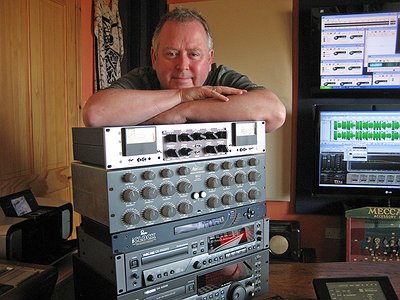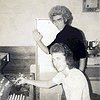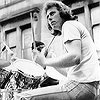Cutting a disc
Former east-ender, now living and working out of his home in Scotland's Isle of Skye, mastering engineer Denis Blackham is an industry icon. Having worked with some of the biggest and most diverse in the business including Led Zeppelin, Brian Eno, Antony & the Johnsons and the Unthanks, Blackham remains modest and a consummate professional. With an open mind and experience dating back to the hey-day of rock n' roll, Blackham has the wisdom to embrace ever-changing technologies and to never ignore his instinct no matter what equipment he's working with.
What was your first mastering-related job - and what or who were your early passions and influences?
I started my mastering career in 1969. These were the days of vinyl cutting, long before the arrival of CD and digital days in the early 80’s. My first cutting session with the artist in residence was with the late Robin Gibb of the Bee Gees, so a good start! I grew up listening to, and buying the music of, The Shadows, The Beatles, Dusty Springfield, the Who etc; all that early sixties music is in my blood forever.
What do you personally consider to be the incisive moments in your artistic work and/or career in the field of mastering?
Before I started cutting records, I used to wonder how the music got into the groove; I even read a book that contained a lot about the process. So when I was offered the job instead of a studio tea boy, I leap at it, and never looked back.
I’ve enjoyed my whole career, all forty plus years of it so far, but there have been some great memorable times. Mastering an album with Neil Sedaka was great, and mastering ‘Evita’ ‘Cats’ and all the singles from those shows were a delight. Vangelis was great, Producer Mike Howlett would bring in great mixes to master of OMD, and other artistes. The Eurythmics, Madness etc, I have fond memories of so many I could get boring.
I love the technical side of disc cutting, and also the digital world we have now. I’ve never been a button pusher, but always delved deeper knowing how the equipment the works, how far I can push it, and how to get the most out of it. I’ve always tried new ways of doing things to improve the end result, and I guess that's the difference that people like, and why they keep coming back to me.
How would you personally define your role in the creative process? What is the scope and what are the limitations of what you are capable of doing? In how far do you feel increasing technical education even among amateur musicians has changed this role?
Mastering is the last part the recording chain, so the last chance to make any musical and audio changes. I’m working with a stereo mix, so essentially I can only make changes to areas of frequency. If the snare drum is too loud, and my client wants it quieter, I can only do so much, as everything else in the frequency will be affected, but I can do a lot.
Depending how good the mixes are, I may not have to do much at all, just a bit of tidying up, putting the tracks in order, the gaps between tracks etc. There’s no reason doing a load of stuff if the mixes stand up on their own. Some engineers think they need to make their mark, but the original role of a disc-cutting engineer was to make the best transfer to disc of the music on the tape, and that’s still the case, even in the digital world. We have so many processing modules, plug-ins, track availability and computerized freedom, it’s all too easy to go too far; you need to know when enough is enough.
In what way does the way music sounds, change the way it is perceived? How do you see the relative importance of sound and composition?
Sound and composition is very important. I think there’s a lot of bad music out there because people don’t know how to put it together properly, and because they stick to regular ways of making music. Some of the most interesting music I master is when the artiste has created something like no other; not necessarily using regular musical instruments or timing.
I think many consumers are blinkered in their music tastes, and can’t cope with something that doesn’t tick the boxes. They don’t understand how real composition can draw you into a piece, and make it more enjoyable.








